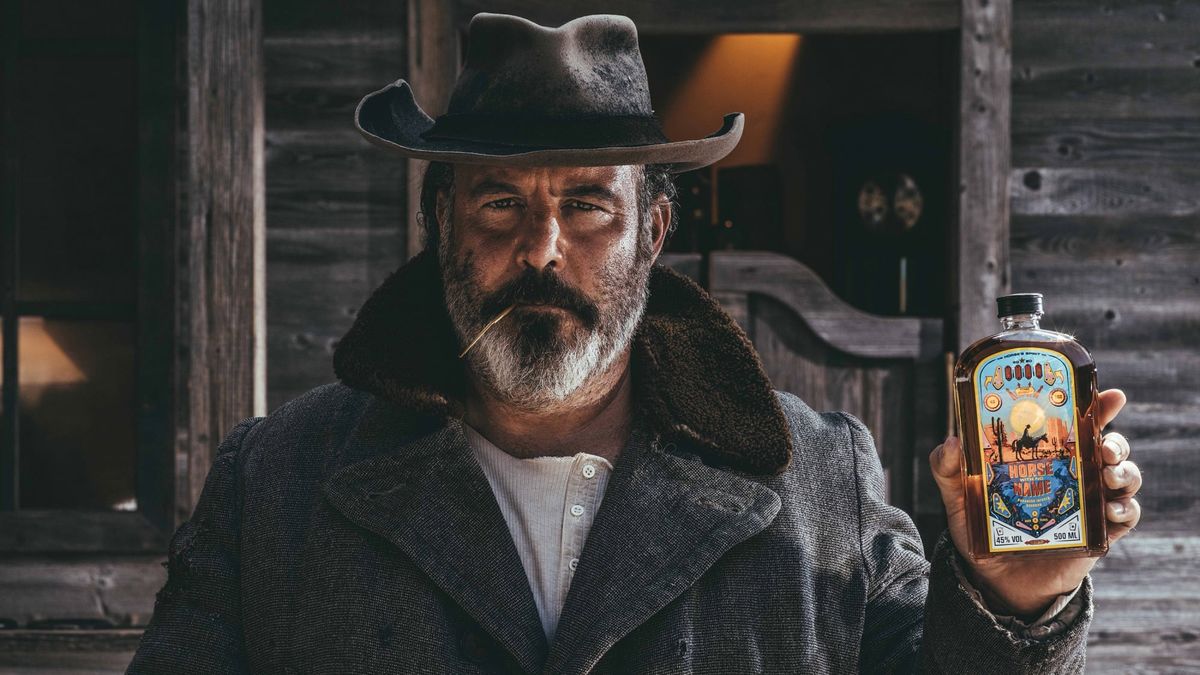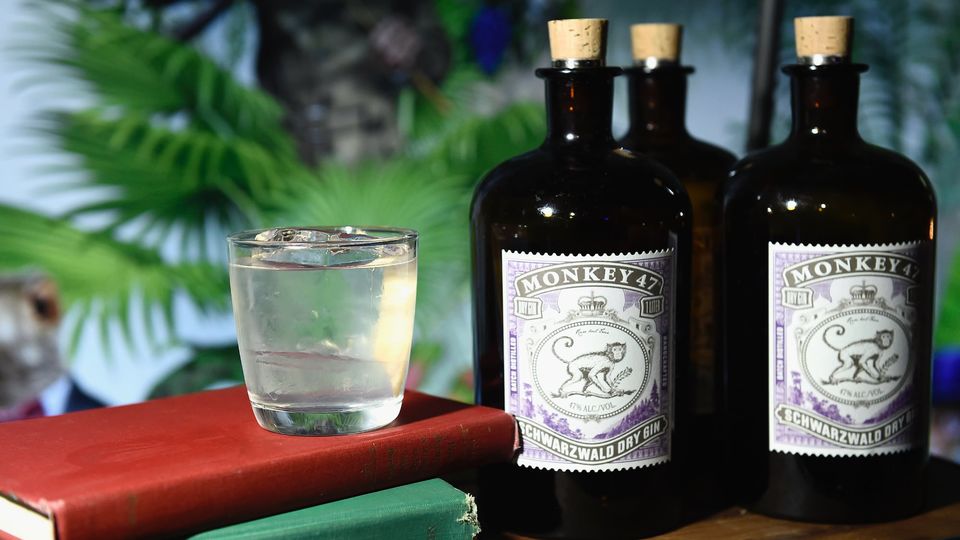The man who began the gin craze wants to sell you chili whisky
The creator of Monkey 47 says it’s time to break down barriers in a spirits industry still guided by provenance-dictating rules.

The US$470 billion spirits industry is governed by thousands of strict laws that decree what makes a Cognac a Cognac, a tequila a tequila and a Scotch whisky a Scotch whisky. Alexander Stein doesn’t take any of the rules too seriously.
Instead, the creator of Monkey 47 gin that seeded much of the craft gin boom wants to break down any preconceived notions about what a spirit can or should be.
Stein calls his latest concoction, a blend of bourbon whiskey and a distillate from locally farmed habanero chilis, Horse With No Name – a fitting title for a liquid that’s impossible to demarcate in the tightly regulated world of liquor.
Operating from the depths of Germany’s Black Forest, Stein is an ambassador for a growing number of producers toying with ingredients and blending formulas to create moonshine-like anomalies that don’t fit into what drinkers would otherwise recognise as, say, a gin or mezcal.
“In the spirits industry, we talk about categories like rum, or whisky, or gin, rather than flavor compounds and aroma structures,” Stein says.
“It’s the complete opposite of the way we talk about perfumers or chefs where there seems to be no such barriers to innovate.”
A spirit can only be legally sold as Scotch whisky, for example, if it’s been made in Scotland, has aged for at least three years in oak barrels and holds a minimum alcohol content of 40%.
Tequila must be made in Mexico from blue agave plants. Over time, such codes have played an important role in marketing a drink, with liquor empires Diageo and Pernod Ricard spending billions on advertising campaigns that celebrate provenance, heritage and manufacturing rituals.
Old barriers
But those delineations are increasingly being challenged by younger drinkers eager to discover what distilling has to offer beyond its established categories. Stein even went as far at one point as distilling a Big Mac, though more as a light-hearted experiment.
And although initial feedback from friends and colleagues has been positive, Horse With No Name is bound to rile purists when it goes on sale early next year.
The sector’s binary approach to distilled goods has long protected the economies of regions producing spirits that carry their name to a set of exacting standards mandated by law.
Cognac, for example, must be made from select grapes grown in the French region of the same name. It’s why the final product is generally thought of as more desirable than less regulated, no-frills brandy from nowhere.
But many younger consumers “don’t necessarily understand why a spirit should belong to a category, or if they understand, they don’t care, and even if they do care, they still want to experiment,” says Spiros Malandrakis, who covers alcohol-industry trends for data researcher Euromonitor.
The infrastructure of how spirits are currently segmented is “much more relevant to a Boomer,” he says.
Because that older generation of drinkers still accounts for the majority of Big Liquor’s customers, the industry’s previous attempts to meld far-flung ingredients with established categories have at times generated more anguish than excitement.
The vodka industry had an ill-fated brush about a decade ago with flavors ranging from wasabi to birthday cake to peanut butter jelly.
Most consumers recoiled in horror. Jim Beam’s honey tea-flavored bourbon whiskey and Bacardi’s torched cherry rum equally failed to gain momentum.
Home drinking
The difference now is that a younger crop of drinkers is coming of age, and more often than not in these pandemic times, they’re consuming at home, giving them more scope to experiment.
Last year, the Scotch Whisky Association relaxed some of its code, allowing producers to toy with novel concepts such as Scotch aged in barrels that formerly held tequila.
The decision came despite The Herald newspaper from Glasgow devoting an alarmed front page to any attempts at watering down the rules governing the spirit.
Stein knows a thing or two about disrupting an industry, and the backlash that it can cause.

When he debuted Monkey 47 a decade ago, some die-hard gin fans panned the creation as overly complex. After all, the gin’s 47 botanical ingredients include chamomile and sage, giving it a distinct floral taste.
The Black Forest also seemed an unlikely provenance for gin, despite the region having a rich heritage in micro-distillers that number close to 30,000 producers in the mountains nestled between Stuttgart and Strasbourg.
Monkey 47’s owner – Pernod Ricard bought the brand in 2015 – has taken note of the changes happening. The company is breaking down the barriers that separate spirits to develop more versatile flavors that offer a twist on established cocktails.
Its experiments to date include Blue Swift, a Cognac finished in casks that once held Kentucky bourbon.
It’s also borrowed technology from the high-end skincare industry to develop a coating for caviar that allows it to slowly infuse a vodka called L’Orbe, which sells for US$150 per bottle. Such new releases have fueled about a quarter of the group’s sales growth in recent years.
For his part, Stein still doesn’t really know what he’s created.
Distilling the habanero chili removes its heat and buoys the pepper’s otherwise floral attributes, he says. Once infused with bourbon, the distillate complements that spirit’s caramel and vanilla tones, while smoothing out some of its roughness.
Not that he thinks it even needs that much explaining. “For me it’s simple,” Stein says. “Do you like it or not?”
This article is published under license from Bloomberg Media: the original article can be viewed here

Hi Guest, join in the discussion on The man who began the gin craze wants to sell you chili whisky